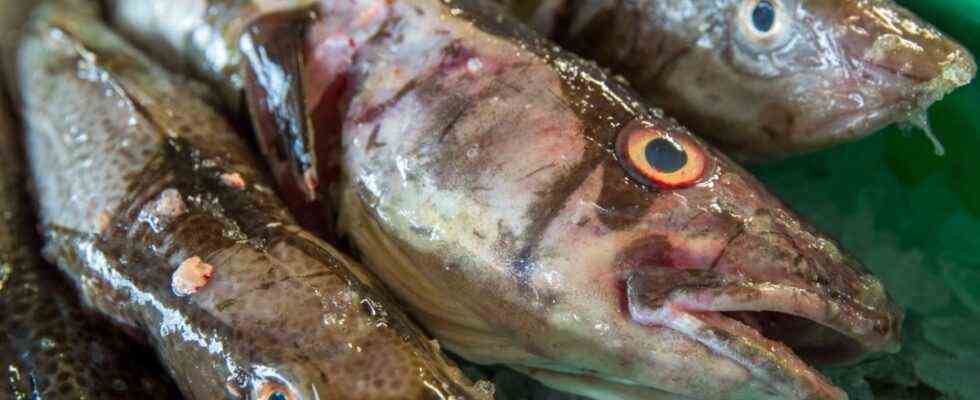Environmental protection, yes, but with a humane measure, please: This is how politicians have to talk, as did the EU Commissioner for Fisheries Virginijus Sinkevicius on Monday before the Council of Ministers met in Luxembourg to discuss catches in the Baltic Sea for 2022 . The decision has not only an ecological, but also a social dimension, said the Lithuanian. In fact, the two-day struggle between the 27 EU countries shows that at a certain point, the ecological and the social can no longer be reconciled. This point has obviously been reached in the Baltic Sea.
“Our future looks rigorously black,” said a Baltic fisherman in a report by NDR (“The Last Catch”) about his trade that was broadcast at the beginning of the year and concluded: “It will soon be the end of work here.” So sad, so probably so. This is hinted at by the decisions that the Council of Ministers made on Tuesday – to the chagrin of the fishermen, to the satisfaction of environmentalists, in part against the vote of the federal government.
In the western Baltic Sea, fishermen will not be allowed to target cod and far less herring than before. The two species were once considered “bread fish” in the western Baltic Sea. The Council of Ministers largely followed the proposal of the Commission, which in turn was based on recommendations of the International Council for the Exploration of the Sea (ICES). Only bycatch of almost 490 tons of cod and 788 tons of herring should be allowed to Europeans. For Germany this means: 104 tons of western cod as by-catch, plus 435 tons of western herring. There should be exemptions for fishing boats under twelve meters that fish with “passive fishing gear”. But that was not enough for the federal government.
Germany does not want to accept the restriction on fishing
State Secretary Beate Kasch, on behalf of Julia Klöckner, the Federal Minister for Food and Agriculture, stated that the restrictions on catching western herring were unacceptable from a German point of view. Germany has already had to accept drastic cuts in fish in recent years: by 94 percent compared to the 2017 catch. The stock also extends beyond the Baltic Sea into the Kattegat and Skagerrak. There, the catch quotas have been reduced significantly less in the same period. “It cannot be that our Baltic fishermen will have to accept drastic cuts again, but the stock will be fished further north,” said the State Secretary. Minister Klöckner had unsuccessfully called for the herring catches for the two areas to be decided at the same time in December. The federal government, on the other hand, sees the cuts in cod as the “only chance to rebuild these stocks”.
Klöckner’s ministry now wants to convene a round table to discuss the future of the industry. According to the states of Mecklenburg-Western Pomerania and Schleswig-Holstein, only a little more than 400 professional fishermen have recently been counted on the Baltic Sea. In 2010 there were around 650, and in the early 1990s more than 1,300. The state is already helping the industry with grants and bonuses. Klöckner is now calling for the temporary shutdown of fishing vessels to be promoted in 2022 to protect herring and cod stocks. Together with the federal states, the ministry wants to examine whether further scrapping premiums are offered.
Representatives of environmental associations also speak of a “catastrophe” and “tragedy” for the small Baltic Sea fishermen. They would now have to pay for the overfishing, which was mainly caused by the use of large trawls. According to the Federal Environment and Nature Conservation (BUND), six out of ten are “outside safe biological limits”. This means that the stocks are no longer large enough to be able to reproduce themselves. The cod population has already reached a tipping point, will not recover in the foreseeable future even without the pressure from fishing and is therefore threatened with extinction, predicts the BUND. The only thing that would help is a consistent catch stop and the complete closure of the breeding areas.
As a brackish sea, the Baltic Sea apparently suffers particularly from overfishing, pollution, over-fertilization and warming. Scientists therefore believe that developments in the Baltic Sea can be identified ahead of time that are still to come in other marine regions. “We don’t have long to prevent a complete collapse of the ecosystem in the Baltic Sea,” says BUND chairman Olaf Bandt.

